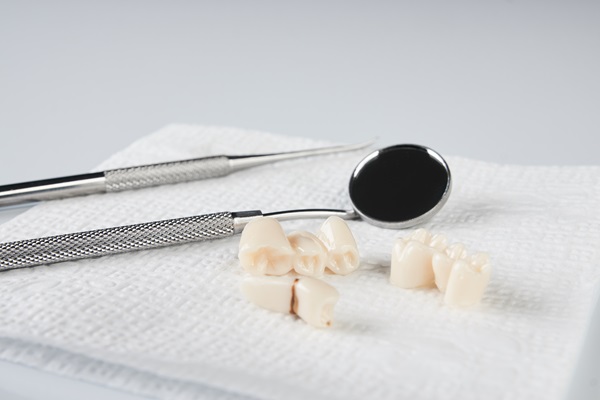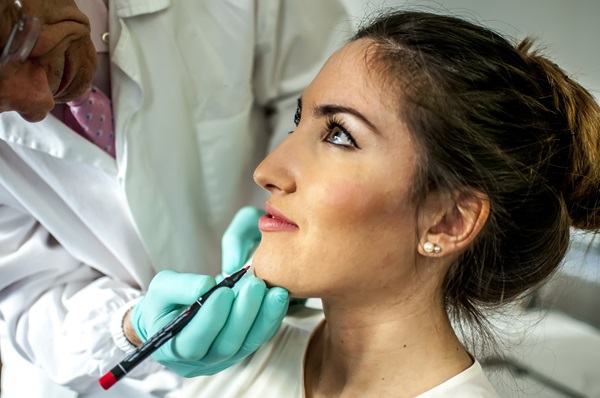What to Ask an Oral Surgeon During a Corrective Jaw Surgery Consultation

Corrective jaw surgery is often recommended by dentists and oral surgeons to address functional problems, such as difficulty breathing or chewing, and chronic discomfort caused by a misaligned jaw or bruxism. This review discusses several important questions to ask your oral surgeon during a corrective jaw surgery consultation.
Oral surgeon consultation: Questions to ask about corrective jaw surgery
Corrective jaw surgery has helped many patients feel and function better daily. However, the process can also be intimidating. It is helpful to come into the consultation with an oral surgeon with a list of questions, such as those discussed here.
What is corrective jaw surgery?
Patietns should first have the oral surgeon explain what corrective jaw surgery is. Also called orthognathic surgery, it is a relatively broad term that refers to jaw surgery that corrects imperfections with the function, shape, and structure of the jaw. Corrective jaw surgery is performed by oral surgeons and typically involves the use of general anesthesia.
Is corrective jaw surgery recommended for me?
There are several reasons that jaw surgery may be recommended by an oral surgeon. It could be used to address structural bite concerns with the jaw, such as underbites, overbites, and crossbites (class II and III malocclusions). It may also be recommended to address breathing issues or obstructive sleep apnea, which is often caused by skeletal deformities. Treatment for obstructive sleep apnea and breathing issues involves moving the jaw to open the airway. Corrective jaw surgery may be recommended as a part of a cosmetic treatment plan.
What can I expect before, during, and after the procedure?
Treatment before corrective jaw surgery may be necessary, such as presurgical orthodontics. The surgical procedure can take between two and six hours, depending on the specific goals of treatment. There is typically discomfort for up to two weeks after the procedure, during which the patient should arrange for time away from work or school.
What are the benefits of corrective jaw surgery?
The benefits of corrective jaw surgery depend on the goals. Common benefits achieved through corrective jaw surgery include improved breathing by opening the airways (both while awake and asleep), an improved bite position, improved speech, and a more desirable appearance.
How can I make a fast recovery after corrective jaw surgery?
Recovery can take up to two weeks. Any discomfort can be managed with pain medication prescribed by the oral surgeon and at-home remedies (e.g., ice packs). It is important to follow the recovery plan provided by the oral surgeon to ensure the fastest recovery possible.
Schedule a consultation today to discuss corrective jaw surgery
You should schedule a corrective jaw surgery consultation if you have not found relief for your jaw-related concerns through non-surgical treatment methods. We can treat a range of complications with corrective jaw surgery, and we can explain all your options for treatment in greater detail during a consultation.
Request an appointment here: https://spectrumsurgical.net or call Facial Spectrum at (816) 524-4334 for an appointment in our Lee's Summit office.
Check out what others are saying about our dental services on Yelp: Oral Surgery in Lee's Summit, MO.
Recent Posts
Wisdom teeth removal is necessary for patients whose wisdom teeth are causing problems. Crowding, misalignment, and pain are the common issues that these teeth cause. The dentist will recommend extracting them to prevent more problems from developing. Here are the procedural steps, as well as aftercare tips, that you must consider for wisdom teeth removal.The…
While receiving a referral to a jaw surgeon can raise many questions, our jaw surgeon and team are here to help. We have the professional training and knowledge to ensure patients receive the proper care they need. Our treatment can help address conditions affecting the mouth, jaw, head, neck, and face. We can help determine…
Infections after dental procedures occur frequently and that is primarily due to a lack of education on how to avoid it, however, with the help of an oral surgeon, infections can be avoided in a few ways. Oral surgeons are dental professionals who focus on invasive procedures that are necessary in order to treat or…
Your facial surgeon will prepare you well before your jaw surgery. This invasive procedure can improve your appearance and relieve your pain. It can also enhance your dental health. Here are the important details that your facial surgeon would want you to know before your jaw surgery.The upper and lower jaws are important in completing…


